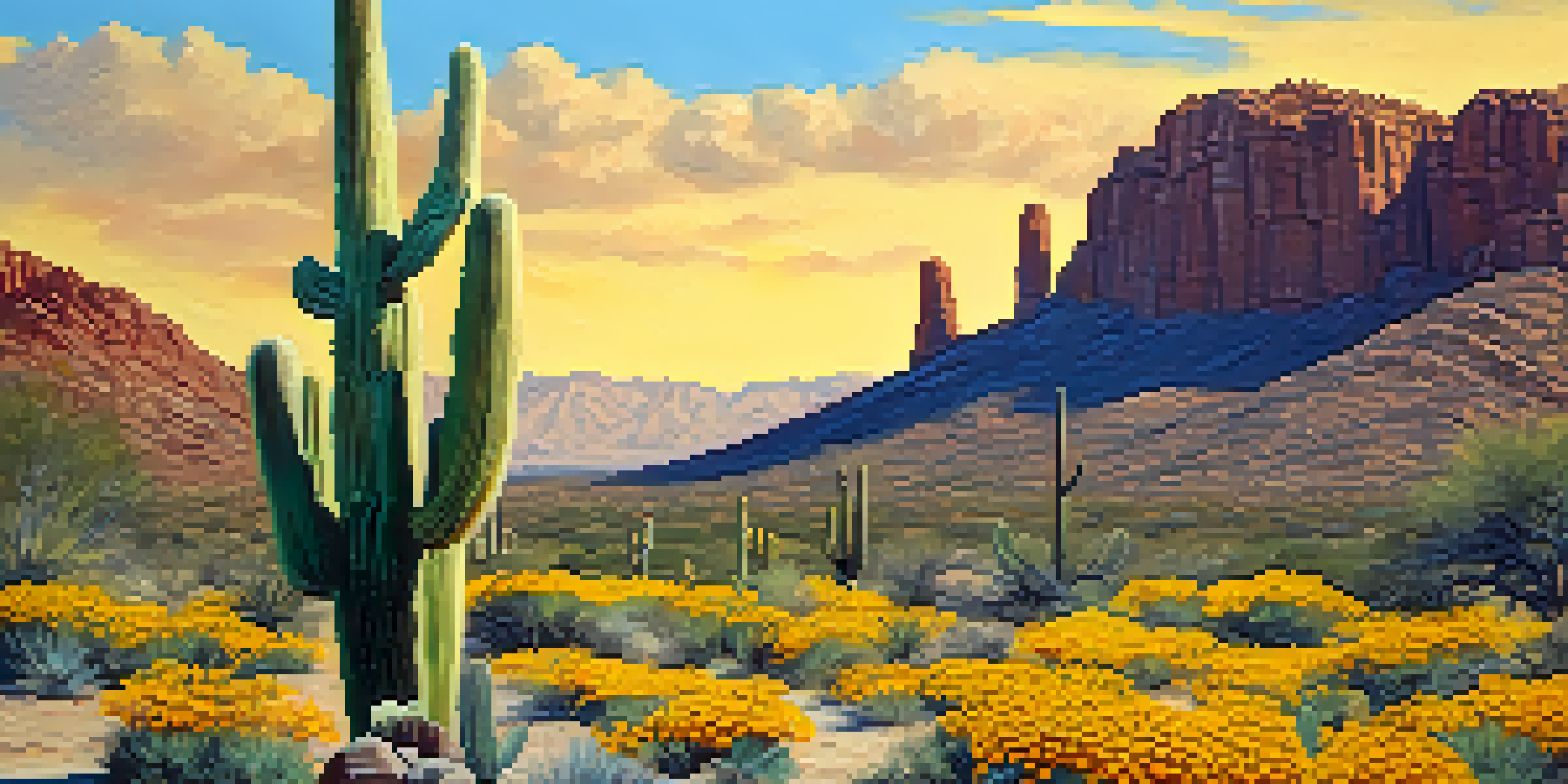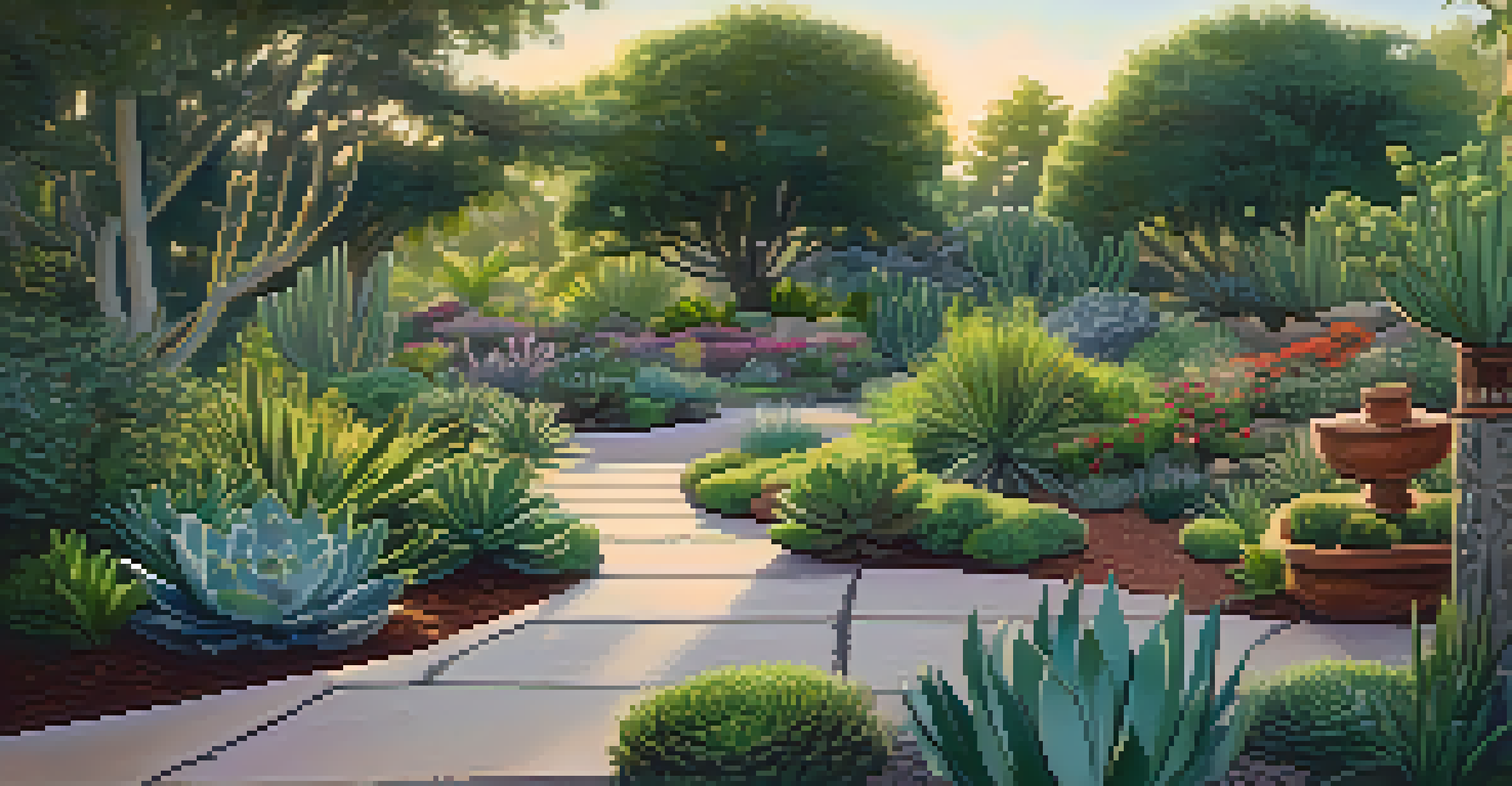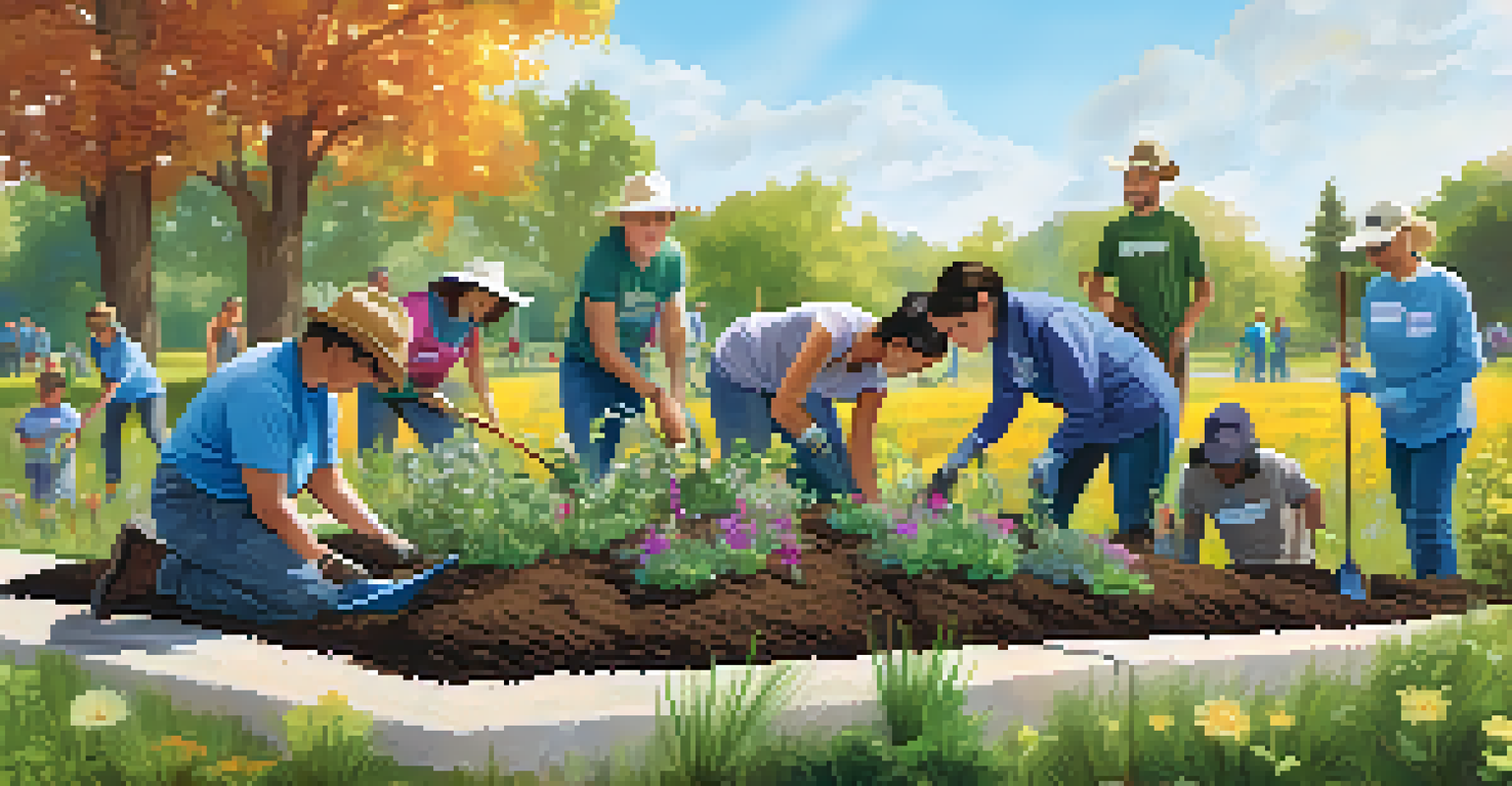Native Plants of Tucson: A Botanical Garden Perspective

Understanding the Importance of Native Plants in Tucson
Native plants are crucial to the local ecosystem, acting as the backbone of Tucson's biodiversity. They provide food and habitat for various wildlife, including birds, insects, and other animals. By nurturing these plants, we support a healthier environment and preserve the unique character of our landscapes.
Our native plants are not just beautiful; they are vital to the health of our ecosystem and the wildlife that depend on them.
In Tucson, the harsh desert climate makes native plants particularly resilient. They have adapted over thousands of years to thrive in arid conditions while requiring minimal water and care. This adaptability not only benefits the plants themselves but also makes them an excellent choice for sustainable gardening practices.
Moreover, incorporating native plants in our gardens can significantly reduce the need for chemical fertilizers and pesticides. This not only leads to a healthier garden but also protects the local water supply and soil quality. Embracing native flora helps create a more balanced and sustainable ecosystem.
A Dive into Tucson's Unique Botanical Gardens
Tucson is home to several remarkable botanical gardens that showcase its native plant diversity. The Arizona-Sonora Desert Museum, for instance, combines a zoo, natural history museum, and botanical garden, offering visitors a comprehensive view of the region's flora and fauna. This unique approach allows guests to appreciate the intricate relationships between plants and the wildlife they support.

Another gem is the Tucson Botanical Gardens, which features a variety of native plant species in beautifully curated landscapes. Visitors can stroll through different themed gardens, each highlighting the beauty and adaptability of Tucson's native flora. This makes it a fantastic destination for both education and inspiration.
Native Plants Boost Biodiversity
By nurturing native plants, we enhance local ecosystems and provide essential habitats for wildlife.
These gardens not only provide a visual feast but also serve as educational hubs. They often host workshops and guided tours, helping the community understand the importance of conserving native plants and how to incorporate them into their homes. Through these efforts, botanical gardens play a vital role in promoting environmental awareness.
Spotlight on Iconic Native Plants of Tucson
Tucson's landscape is dotted with iconic native plants like the saguaro cactus, which can grow to be over 40 feet tall. This giant of the desert is not just a striking sight; it serves as a crucial habitat for various species, including birds and insects. The saguaro also has cultural significance, representing the resilience and beauty of the Sonoran Desert.
The greatest threat to our planet is the belief that someone else will save it.
Another noteworthy plant is the creosote bush, known for its distinctive smell after a rain. This hardy shrub is vital for soil stabilization and provides essential habitat for wildlife. Its ability to thrive in extreme conditions makes it a symbol of survival in the harsh desert landscape.
The desert marigold, with its bright yellow blooms, adds vibrant color to Tucson's native flora. It's not only visually appealing but also attracts pollinators, playing a key role in the local ecosystem. Each of these plants tells a story of adaptation and resilience that reflects the spirit of Tucson.
Benefits of Cultivating Native Plants at Home
Growing native plants in your own garden comes with numerous benefits. They require less water and maintenance compared to non-native species, making them ideal for Tucson's dry climate. This not only saves you time and effort but also conserves precious water resources.
Moreover, native plants enhance the local ecosystem by providing food and shelter for various wildlife. By creating a habitat in your backyard, you can attract birds, butterflies, and other beneficial insects, transforming your garden into a lively ecosystem. It's a wonderful way to connect with nature right at home.
Sustainable Gardening Practices
Growing native plants in Tucson conserves water and reduces the need for chemical fertilizers and pesticides.
Additionally, cultivating native plants can increase the aesthetic appeal of your property. With their unique shapes, colors, and textures, they can create a stunning and diverse landscape. Plus, you’ll be contributing to the preservation of local biodiversity, which is a rewarding endeavor for any gardener.
Challenges Facing Tucson's Native Flora
Despite the resilience of native plants, Tucson’s flora faces significant challenges. Urbanization and development are encroaching on natural habitats, leading to the loss of native plant populations. This not only affects the plants but also disrupts the delicate balance of the ecosystem they support.
Invasive species also pose a threat, often outcompeting native plants for resources. These invaders can alter soil composition and disrupt local wildlife, making it essential to manage these populations effectively. Awareness and education about native versus invasive species are crucial for conservation efforts.
Climate change further exacerbates these challenges, affecting rainfall patterns and increasing temperatures. Native plants, while adapted to their environment, may struggle to cope with these rapid changes. This highlights the importance of conservation efforts to protect and restore native habitats.
Community Involvement in Native Plant Conservation
Community engagement plays a vital role in the conservation of Tucson's native plants. Local organizations and volunteer groups often organize events, such as tree planting days or native plant sales, encouraging residents to get involved. These initiatives not only enhance local biodiversity but also foster a sense of community spirit.
Educational programs in schools and community centers help raise awareness about the importance of native plants. By teaching the next generation about their ecological significance, we can inspire future stewards of the environment. Engaging with children through hands-on activities can make learning about nature exciting and impactful.
Community Engagement is Key
Involving the community in native plant conservation fosters awareness and strengthens local biodiversity efforts.
Furthermore, citizen science projects allow individuals to contribute to research and conservation efforts. By monitoring local plant populations and reporting observations, community members can play an active role in protecting Tucson's native flora. This collaborative approach strengthens community ties and encourages a shared responsibility for the environment.
Conclusion: Embracing Tucson's Native Plant Heritage
Tucson's native plants are more than just beautiful additions to our landscapes; they are vital components of our ecosystem. By understanding their importance and embracing them in our gardens, we can contribute to a healthier environment. This not only enriches our own lives but also supports the diverse wildlife that call Tucson home.
As we face challenges like urbanization and climate change, it becomes increasingly important to advocate for and protect our native flora. Engaging in community efforts and educating others about the significance of these plants can make a substantial difference. Together, we can ensure that Tucson's unique botanical heritage is preserved for generations to come.

So, whether you're a seasoned gardener or just starting out, consider incorporating native plants into your landscape. Not only will you create a stunning garden, but you'll also play a vital role in sustaining the natural beauty and diversity of Tucson. Embrace the native plants of Tucson, and you'll be contributing to a brighter, greener future.